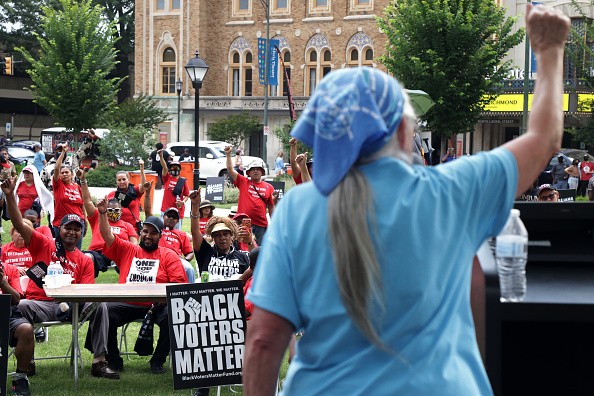Black voters and voting rights advocates were trying to end Mississippi's long history of voter suppression this year.
According to Black voters, voting rights groups, candidates, and researchers, nearly 40% of the overall Black population has been experiencing voter fatigue.
Black Voters Fight Mississippi's Long History of Voter Suppression

Tiffany Wilburn, a social activist, did not see the point in voting any longer. She shared that her children did not have proper school books, and health insurance was expensive and difficult to access.
Furthermore, the police abuse continued against Black residents, and the city has been struggling to access clean drinking water. She felt hopeless, especially with the long history of voter suppression in Mississippi.
"It's like you're not being heard," Wilburn said in her hometown of Jackson, the state capital. She added that Black voters kept on hoping and praying for change as they ran to the polls, but nothing was happening.
According to ABC News, political dynamics joined forces to end voter suppression and led many voters, such as Wilburn, to reengage. Five Black candidates will be running for statewide office, from agriculture commissioner to secretary of state. The candidates will try to become the first Black candidate ever to win.
Voting rights advocates encouraged the rebuilding of the Black community's voting base and produced a tailwind for Democrats in a state that was now controlled mainly by Republicans.
"Black people here aren't scared to vote and do care because it impacts all of us, our entire livelihood," said Glennard Warren, a 66-year-old voter in Vicksburg. She noted that enhancing and educating all voters, especially Black people, was more critical now.
Furthermore, she admitted that there were many constraints that they were currently facing, like gerrymandering and purging of voter rolls. But she assured the voters and residents that she would do everything she could to fight for their voting rights.
Black Voter Suppression
Black votes were suppressed due to White leaders of both parties who used numerous tactics over several decades. The Mississippi Constitution in 1890 required candidates for governor and other statewide offices to win not only a greater number of votes but also a majority of the state's 122 House districts.
The voters in 2020 revoked the constitution after a lawsuit and ensured that candidates just had to win a simple statewide majority. The voting rights groups and candidates said that the decision has expanded their voter base, not just for this year's candidates.
Robert Bradford, the Democratic nominee for state agriculture commissioner, said that revoking the constitution would open doors for Black candidates to succeed in the coming years.
"We've got to sow those seeds in areas that never had anything grown," he said. He encouraged several other Democratic candidates to engage with voters who had been hopeless, thinking their votes would never make a difference in the state.








